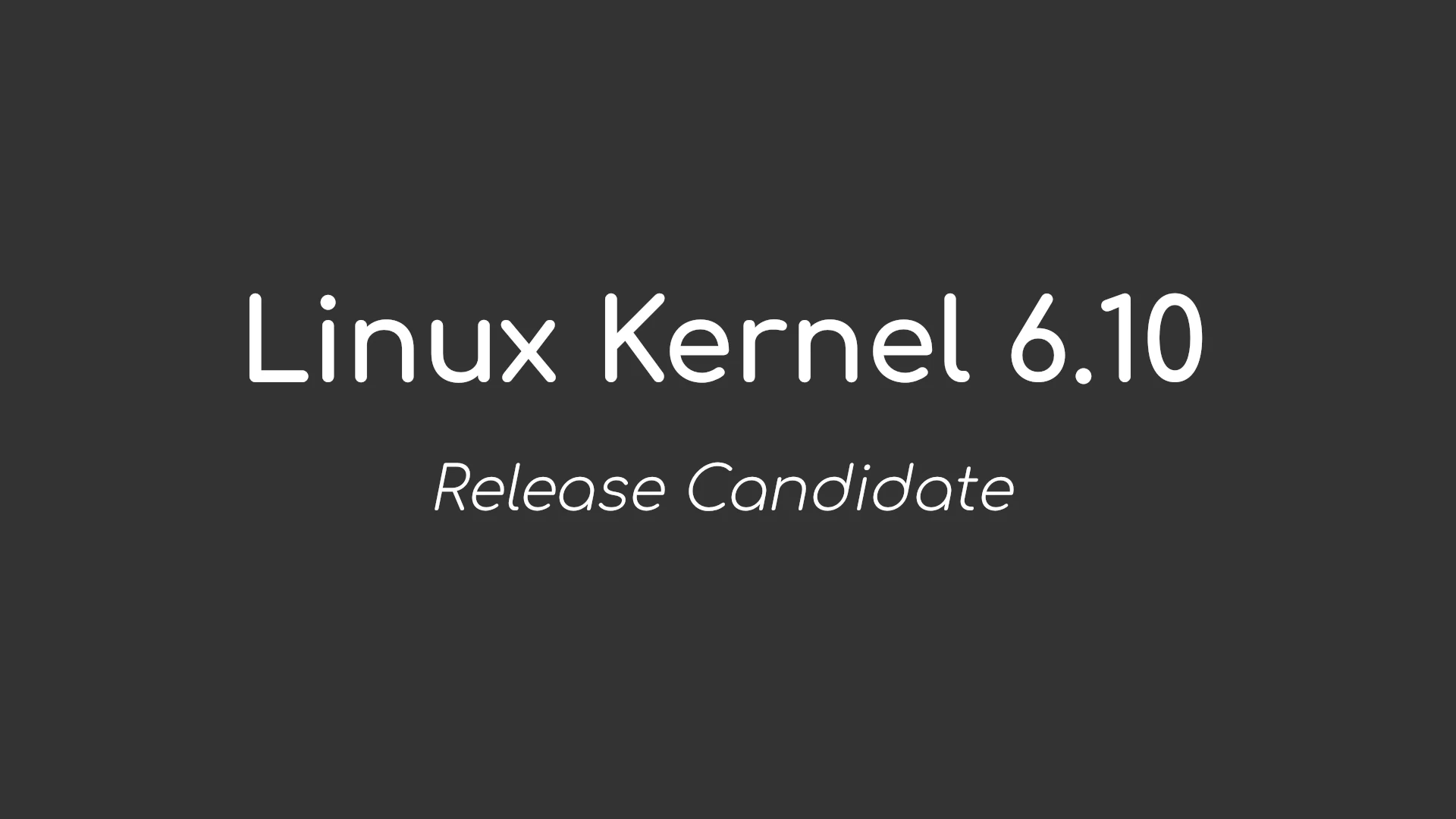Linus Torvalds has announced the general availability of the first Release Candidate (RC) of the upcoming Linux 6.10 kernel series for public testing.
Two weeks have passed since the merge window for Linux kernel 6.10 was opened after the launch of the Linux kernel 6.9. This version is gradually integrating into the stable software repositories of some popular GNU/Linux distributions. For example, it’s already incorporated into Arch Linux and openSUSE Tumbleweed.
Consequently, the merge window for Linux kernel 6.10 is now officially closed, and the first Release Candidate is up for public testing. This is targeted towards developers and individuals who are eager to sample the new features of the next major kernel release.
Some notable elements we anticipate in Linux kernel 6.10 include initial Rust support for 64-bit RISC-V, a new mseal() syscall for memory sealing, TPM bus encryption, and integrity protection for the TPM driver. Other expected features are KVM ParaVirt (PV) IPI support (guest and host) for the LoongArch architecture, expedited AES-XTS block cipher mode on modern x86_64 CPUs, and RAPL (Running Average Power Limit) support for Intel Arrow Lake and Lunar Lake CPUs.
It also promises improved memory management on ARM64 (AArch64), performance improvements for the Btrfs file system (faster NOCOW write checks, reduced extent locking ranges, and more), improved performance of opening unencrypted files on filesystems that support fscrypt, random number generator updates, more bcachefs updates, and IOCTL control support for Landlock.
Of course, new and updated drivers for state-of-the-art hardware support, including a new driver for ARM Mali firmware based GPUs, new sound drivers for AMD and Intel platforms, Nuvoton NAU8325, Rockchip RK3308, and Texas Instruments PCM6240, new Intel IPU6 controller and Broadcom BCM283x/BCM271x drivers, and a new drivers/platform/arm64 directory used exclusively for ARM64 laptop embedded controller (EC) drivers.
Linux kernel 6.10 also improves support for several laptops by adding various ACPI fixes. These include the Acer Aspire 1, Asus Vivobook Pro N6506MV, TongFang GXxHRXx and GMxHGxx, XMG APEX 17 M23, Dell XPS 15 9550, Surface Pro, Lenovo IdeaPad, ThinkPad, and Slim 7 16ARH7 laptops. In addition, it adds Intel “Lunar Lake” support to the ACPI DPTF (Intel Dynamic Platform and Thermal Framework) driver.
Last but not least, there’s also the usual networking improvements like TCP fraglist GRO support to allow the chaining of multiple TCP packets and forwarding them together, support for using SMP threads for handling packet backlogs, a new and faster garbage collection method for AF_UNIX sockets based on Tarjan’s Strongly Connected Components algorithm, IPv6 (and IPv{4,6}-over-IPv{4,6}) support to the GTP protocol driver, and a new netlink protocol dedicated to configuring NFSD, along with a new userspace tool, called nfsdctl, in nfs-utils.
“This seems to be a regular-sized release, maybe even slightly on the smaller side. All the stats look fairly normal,” said Linus Torvalds. “We don’t have any new filesystems, and the XFS online repair work means that the bcachefs fixes aren’t even the biggest filesystem change any more. But all of that is dwarfed by all the usual driver updates (and, as is tradition, GPU drivers are in a massive lead, with networking a distant second and everything else is relatively small).”
The final release of Linux kernel 6.10 is expected in mid or end of July 2024, which depends on how many Release Candidate (RC) milestones Linus Torvalds will announce until then. As such, it will be out on July 14th if there will be only seven RCs or on July 21st if eight RCs are to be announced, so mark your calendars accordingly.
Until then you can take Linux kernel 6.10 for a test drive by downloading the most recent Release Candidate milestone from either Linus Torvalds’s git tree or the kernel.org website. However, remember not to install or use this development kernel version on a production machine.
